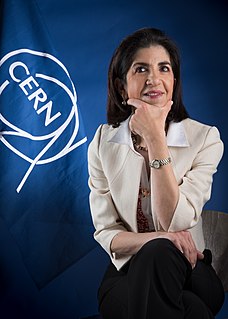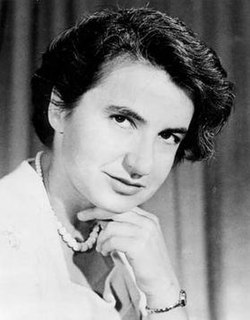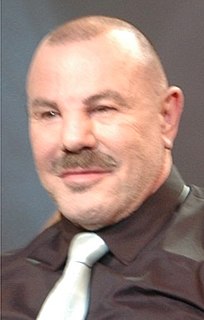A Quote by Lawrence M. Krauss
We now know that we are more insignificant than we ever imagined. If you get rid of everything we see, the universe is essentially the same. We constitute a 1 percent bit of pollution in a universe . . . we are completely irrelevant.
Quote Topics
Related Quotes
When we look at the universe, what we see by eye or with our telescopes is only five percent of the universe. The rest, 95 percent is dark. Dark meaning, first of all, not visible to our instrument. Second, dark also indicates our ignorance. We don't know what's the composition of this part of the universe.
Everything we do understand about the universe - the periodic table of elements, Einstein's laws, Newton's laws, all of chemistry, all of biology - that's 4 percent of the universe. We got to the moon on the 4 percent we do understand. We landed on Mars on the 4 percent we do understand. So the day we crack the nut of the rest of that 95 percent... Oh my gosh.
I see no reason to believe that a creator of protoplasm or primeval matter, if such there be, has any reason to be interested in our insignificant race in a tiny corner of the universe, and still less in us, as still more insignificant individuals. Again, I see no reason why the belief that we are insignificant or fortuitous should lessen our faith.
The Europeans are all deeply tainted with prejudices, both ecclesiastical and temporal, which they can never get rid of. They are all infected with episcopal and presbyterian creeds, and confessions of faith. They all believe that great Principle which has produced this boundless universe, Newton's universe and Herschell's universe, came down to this little ball, to be spit upon by Jews. And until this awful blasphemy is got rid of, there never will be any liberal science in the world.
I realised I was living in my own universe with lots of assistants. I didn't have a cell phone; I didn't know how to use a computer. Everybody was doing everything for me. So I left and moved to New York. It was the end of an era, and I must say I found myself a bit lost. I wasn't in the protected Mugler universe any more.
We have simply arrived too late in the history of the universe to see this primordial simplicity easily... But although the symmetries are hidden from us, we can sense that they are latent in nature, governing everything about us. That's the most exciting idea I know: that nature is much simpler than it looks. Nothing makes me more hopeful that our generation of human beings may actually hold the key to the universe in our hands - that perhaps in our lifetimes we may be able to tell why all of what we see in this immense universe of galaxies and particles is logically inevitable.
We are all connected to each other biologically, to the earth chemically and to the rest of the universe atomically. That's kinda cool! That makes me smile and I actually feel quite large at the end of that. It's not that we are better than the universe, we are part of the universe. We are in the universe and the universe is in us.
For myself, I like a universe that, includes much that is unknown and, at the same time, much that is knowable. A universe in which everything is known would be static and dull, as boring as the heaven of some weak-minded theologians. A universe that is unknowable is no fit place for a thinking being. The ideal universe for us is one very much like the universe we inhabit. And I would guess that this is not really much of a coincidence.
Ayurveda is the science of life and it has a very basic, simple kind of approach, which is that we are part of the universe and the universe is intelligent and the human body is part of the cosmic body, and the human mind is part of the cosmic mind, and the atom and the universe are exactly the same thing, but with different form, and the more we are in touch with this deeper reality, from where everything comes, the more we will be able to heal ourselves and at the same time heal our planet.
Everything we know about the universe is studied by using telescopes or other instruments that look at visible light, infrared, ultraviolet or X-ray - different wavelengths of electromagnetic interactions. Only 4 percent of what's in the universe gives off electromagnetic radiation, so we don't have any handle on the rest.
































